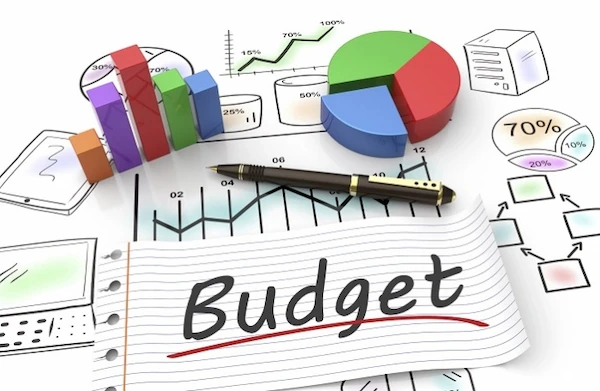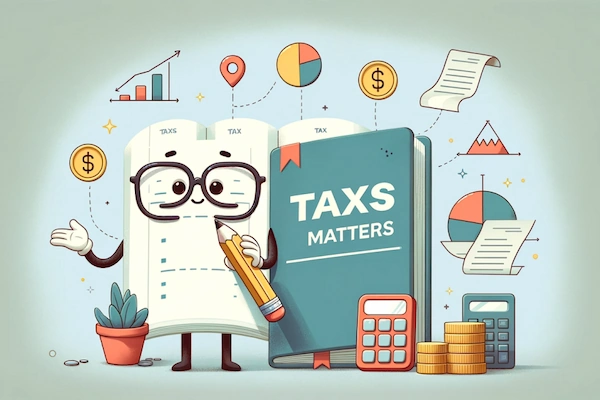The Impact of Income Tax on the Vietnamese Economy
Income tax is a crucial factor shaping Vietnam’s economic landscape. It directly affects individuals, businesses, and the nation as a whole. At Jobinvietnam.net, we’ve closely studied how income tax policies influence growth, investment, and employment across the country. Let’s dive in and explore the multifaceted impact of income tax on Vietnam’s vibrant economy.
Driving Government Revenue and Public Spending

One of the most significant roles income tax plays is as a key source of government revenue. The money collected from individual taxpayers and businesses helps fund essential public services, infrastructure projects, and social welfare programs. When you pay your income taxes, you’re directly contributing to Vietnam’s development and the well-being of your fellow citizens. It’s a civic duty that keeps the gears of progress turning.
However, striking the right balance with tax rates is crucial. Set them too high, and you risk stifling economic activity. Too low, and the government may struggle to meet its obligations. Vietnamese policymakers are constantly fine-tuning this equilibrium, aiming to optimize revenue without overburdening taxpayers. It’s a delicate dance that requires foresight and adaptability.
Shaping Individual Financial Decisions

For the average Vietnamese worker, income tax is a regular consideration in financial planning. The amount of tax you owe is directly tied to your earnings, with higher earners facing steeper rates. This progressive structure aims to promote fairness and redistribute wealth to an extent.
But income tax doesn’t just determine how much of your paycheck goes to the government. It also influences decisions about spending, saving, and investing. Higher tax rates can motivate individuals to seek out tax-advantaged investment vehicles or increase their savings to offset the impact. On the flip side, lower taxes often spur consumer spending, as people have more disposable income.
As you navigate your financial journey, understanding how income tax affects your bottom line is essential. By optimizing your tax strategy and making informed choices, you can make the most of your hard-earned money while still fulfilling your obligations to the nation.
Attracting Foreign Investment

Vietnam’s income tax policies also play a significant role in attracting foreign investment. International companies looking to expand into new markets closely examine tax regimes when making location decisions. A competitive and transparent tax system can be a major draw, as it directly impacts profitability and long-term viability.
In recent years, Vietnam has made strides in creating a more welcoming environment for foreign investors. Initiatives like tax incentives for specific industries and streamlined filing processes have helped boost the country’s appeal. As more global players set up shop in Vietnam, they bring capital, expertise, and jobs, fueling economic growth and development.
However, the competition for foreign investment is fierce, with nations worldwide vying for a piece of the pie. Vietnam must continue to adapt and innovate with its tax policies to maintain an edge. Striking the right balance between attracting investors and ensuring a fair contribution to the economy is an ongoing challenge, but one that holds immense potential for the country’s future.
Encouraging Business Growth and Job Creation
Income tax also has a direct impact on businesses operating in Vietnam, from small startups to large corporations. The tax rates and regulations companies face can make or break their success, influencing decisions about expansion, hiring, and investment.
To encourage entrepreneurship and job creation, Vietnamese policymakers have implemented various tax incentives and support measures. For example, small and medium enterprises (SMEs) may be eligible for reduced tax rates or exemptions, helping them thrive in the early stages of growth. Similarly, companies in priority sectors like technology or renewable energy may enjoy tax breaks to spur innovation and development.
But it’s not just about the numbers on a tax return. The overall efficiency and predictability of the tax system also matter greatly to businesses. Clear regulations, streamlined filing processes, and consistent enforcement create a stable environment where companies can plan for the long term and make confident decisions.
As Vietnam continues to foster a business-friendly ecosystem, income tax policies will undoubtedly play a central role. By striking the right balance between revenue generation and incentivizing growth, the country can unlock the full potential of its private sector and create opportunities for millions of Vietnamese workers.
Tax Compliance and Planning for Individuals and Businesses in Vietnam
Navigating Vietnam’s income tax landscape requires careful planning and compliance for both individuals and businesses. Tax regulations can be complex, with various deductions, exemptions, and reporting requirements to consider. Individuals must accurately track their income, file returns on time, and pay any taxes owed to avoid penalties and legal issues. Businesses face even more intricate tax obligations, from corporate income tax to value-added tax (VAT) and employee withholding.
Effectively managing tax compliance and optimizing tax strategies can make a significant difference in financial outcomes. By staying informed about tax laws, keeping meticulous records, and seeking professional advice when needed, individuals and businesses can minimize their tax liabilities while fully meeting their obligations. Proactive tax planning allows for maximizing deductions, leveraging incentives, and making strategic financial decisions that align with Vietnam’s tax framework.
As Vietnam’s economy continues to evolve, staying on top of tax developments is crucial for success. To dive deeper into tax compliance and planning strategies, read our comprehensive guide: Tax Compliance and Planning for Individuals and Businesses in Vietnam. Our experts at Jobinvietnam.net are also ready to provide personalized support to help you navigate Vietnam’s tax landscape with confidence. Contact us today via phone, Zalo, or WhatsApp to take control of your tax situation and thrive in Vietnam’s dynamic economy.


